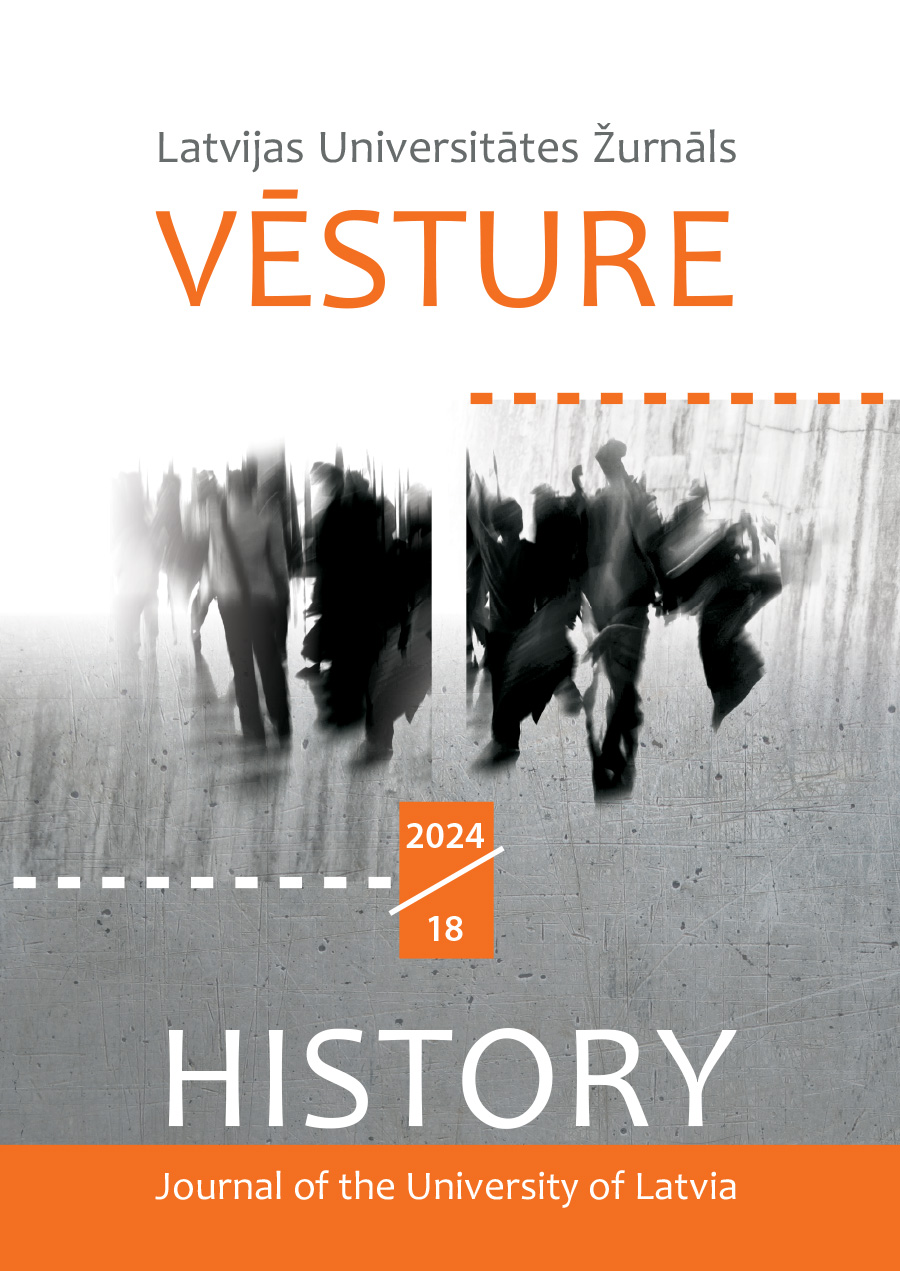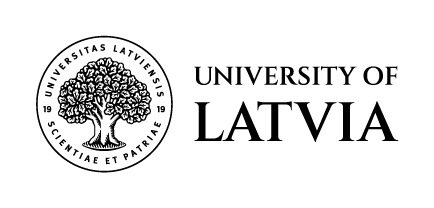Editorial
Abstract
The second issue of 2024 is devoted to selected political and social issues
in the history of the 20th century. The thematic focus of this issue is on the period immediately after the First World War, which was profoundly important for the Baltic states and characterised by rapid changes – two articles and the historical source published in this issue are devoted to this period. The other articles encompass the period from 1918 to 1934, as well as the independence restoration process of the Republic of Latvia in 1991.
The extensive study of Lady Muriel Paget’s mission activities in Daugavpils from 1920 to 1922 by Professor Emeritus Geoffrey Swain of the University of Glasgow is published in two sequels. This issue contains the second part of the study, which examines the complex relationship between the mission and its main financial backer, the international Save the Children Foundation, and the differing perceptions of the nature of relief work between the two parties involved. The first part of the study, which has been published in the first issue of 2024, looks at the history of the establishment of the mission in Daugavpils and traces Lady Muriel’s attempts to help the Latvian society affected by the protracted war as effectively as possible, especially concentrating upon the most vulnerable part of it – the children.
In his study, Michal Sadlowski, associate professor at the University of Warsaw, proposes to focus on a lesser-known aspect of the Baltic states’ acquisition of independent statehood after the First World War. By analysing the respective legal and political views of the Cadet Party leader Pavel Miliukov, which were inextricably linked to Miliukov’s plans for the further development of Russia, the author explains the reasons for his negative attitude towards the newly created Baltic states.
As in previous issues of the journal, we are also publishing one article based on a recently defended master’s thesis. In the current issue, it is an article by Helena Emerberga, which is devoted to the study of the conditions and motivations of the Latvian civil service in the period 1918–1934. Analysing the activities of the Central Union of State and Local Government Employees, the author identifies four stages in the development of the remuneration system for state employees in the period under review, noting that the issue of remuneration was particularly problematic for the lowest grades of civil servants.
Jānis Taurēns, associate professor at the University of Latvia, in his article focuses on another consequential period in the history of Latvia, which has been relatively little studied in academic terms – the period of restoration of independence of the Republic of Latvia in the late 1980s and early 1990s. The author analyses a politically and legally ambiguous and complex episode – the referendum on Latvia’s independence on 3 March 1991. Viewed in broader context of the international situation, the political situation in the Soviet Union and the domestic political situation in Latvia, the author analyses this particular political event, and, furthermore, describes the overall extremely complex political situation in which the efforts of the Baltic states to restore and consolidate their statehood were taking place.
The historical source chosen for publication in this volume is a report by Lieutenant Colonel Stephen Talents, the head of the British Political Mission in Latvia, on military, political and social developments in Latvia and the region from 4 to 9 September 1919. This period in the Latvian War of Independence is particularly complex and tense, hence, Mr. Talents’ detailed observations are a valuable source for in-depth understanding not only of the events as such, but also of the views and positions held by the various parties involved in the conflict, which undoubtedly influenced the subsequent course of events. This report has been translated and prepared for publication by Professor Ēriks Jēkabsons of the University of Latvia.
As usual, reviews of recent research in history and related fields are included in the volume. We offer our readers the reviews of two books published in Latvia and two books published abroad. The reviewed works published in Latvia are Jānis Lejnieks’ book on the history of urban planning in Riga, and Valdis Bērziņš’ latest study dedicated to Jukums Vācietis, an important and controversial figure in Latvian history. The reviewed works published abroad include the fundamental study of the Baltic question in the context of the collapse of the Soviet Union and the politics of the world powers by the Latvian historian Una Bergmane in France, as well as a monograph dedicated to the Communist International by the Swiss historian Brigitte Studer.
Published
Issue
Section
License
Copyright (c) 2024 University of Latvia

This work is licensed under a Creative Commons Attribution-NonCommercial 4.0 International License.


